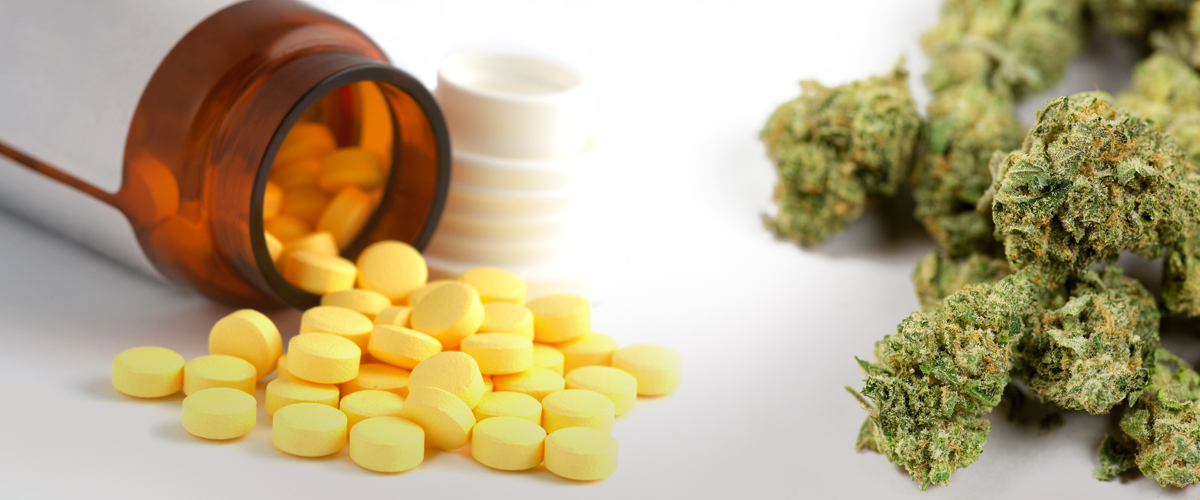Yet another study indicates that giving legal access to medical marijuana could directly help address the nation’s opioid crisis.
The need for solutions for the nation’s opioid crisis is at an all-time-high. With nearly 100 Americans dying from opioid overdose every day, medical professionals and even the government are examining an array of potential avenues for addressing the epidemic. Findings in another study add to a growing body of evidence suggesting that medical marijuana could play a notable role in addressing the public health crisis.
Researchers from the University of New Mexico have found that the legalization of medical marijuana can reduce opioid use among chronic pain patients. Using informal surveys, the investigators discovered that a significant proportion of opioid-using chronic pain patients who enrolled in New Mexico’s Medical Cannabis Program (MCP) between 2010 and 2015 significantly reduced or ceased their opioid intake.
UNM associate psychology professor Jacob Miguel Vigil and assistant economics professor Sarah See Stith tracked the drug consumption habits of 37 habitual opioid-using chronic pain patients who enrolled in the program, as well as 29 habitual opioid-using chronic pain patients who didn’t enroll, over the five-year period.
The patients who registered with the state’s medical marijuana program also reported “improvements in pain reduction, quality of life, social life, activity levels, and concentration, and few side effects from using cannabis one year after enrollment in the MCP.”
Vigil and Stith concluded that the “clinically and statistically significant evidence of an association between MCP enrollment and opioid prescription cessation and reductions and improved quality of life warrants further investigations.”

White House Rejects of MMJ as Alternative to Opioids
Despite the evidence, the White House Commission on Combating Drug Addiction and the Opioid Crisis, headed by outgoing New Jersey Gov. Chris Christie, refuses to acknowledge that medical marijuana could be beneficial for addressing the national crisis.
Research suggests that cannabis could serve as a safer alternative than opioids for treating pain. Unlike opioids, marijuana carries no risk of fatal overdose.
However the commission’s report, published earlier this year at Donald Trump’s request, listed 56 recommendations to address the crisis but failed to include medical marijuana as an alternative treatment for chronic pain.
Later, Christie went further to denounce medical marijuana as an option, writing in a letter to Trump that, “The Commission acknowledges that there is an active movement to promote the use of marijuana as an alternative medication for chronic pain and as a treatment for opioid addiction. … The Commission found this very disturbing.”
Medical Marijuana in New Mexico
New Mexico is one of 29 U.S. states that has legalized the use of marijuana for medical purposes. Medical marijuana has been legal in New Mexico since voters approved the Lynn and Erin Compassionate Use Act in 2007. Under the state’s law, patients that obtain a written recommendation from a licensed physician can legally purchase up to 8 ounces of medical cannabis over a 90-day period.
New Mexico’s MCP approves medical marijuana for patients diagnosed with chronic pain and 21 other conditions. As of September, more than 48,000 people were enrolled in New Mexico’s Medical Cannabis program.
Learn More about Medical Marijuana’s Potential for Addressing the Opioid Epidemic
You can access the entire study – “Associations between medical cannabis and prescription opioid use in chronic pain patients: A preliminary cohort study” – through PLOS One.
These most recent findings are just the latest evidence indicating that medical marijuana could play a notable role in addressing the nation’s opioid overdose rates. Earlier this year, researchers at the University of California, San Diego found that opioid-related hospitalizations dropped after states legalized medical marijuana. Opioid overdose rates also dropped in Colorado after recreational marijuana was legalized.
You can learn more about medical marijuana’s therapeutic potential for pain and other symptoms and conditions through our education page.






